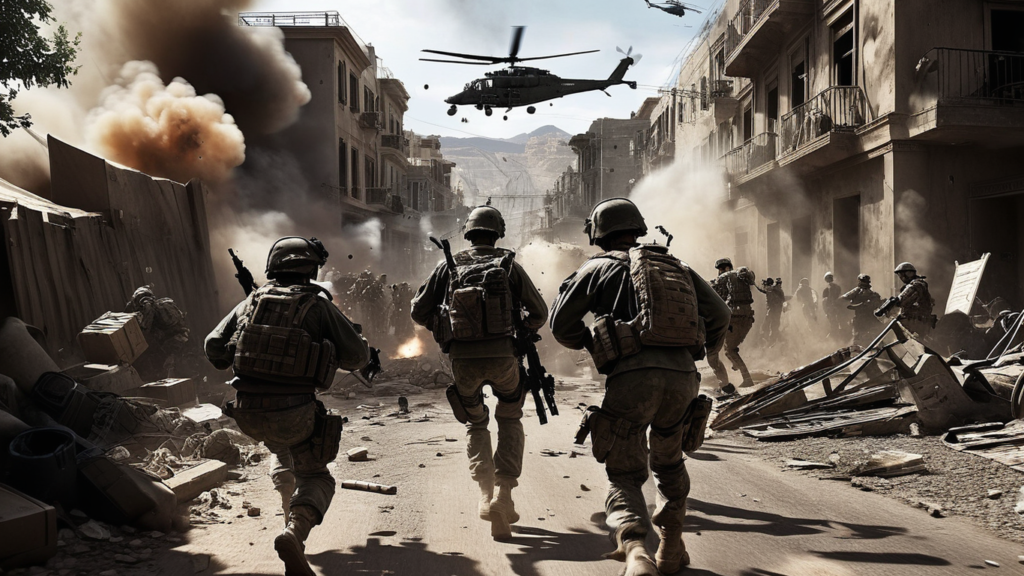
It was an ordinary Tuesday morning when the world as I knew it shattered into a thousand silent pieces. The office buzzed with its usual hum of activity—phones ringing, keyboards clacking, and the gentle murmur of conversation. My cubicle was a cocoon of routine, a safe haven from the unpredictable outside world. Little did I know that soon, safety would become a distant memory.
I was typing out an email when the first tremor hit. The lights flickered, and a low rumble reverberated through the building. My colleagues and I exchanged puzzled glances, the confusion quickly giving way to alarm. The second tremor was stronger, accompanied by a distant but unmistakable sound of an explosion. The power went out, plunging the office into a twilight of emergency lights.
Panic rippled through the floor. The PA system crackled to life, the voice of our building manager trembling with urgency. “Everyone, please evacuate immediately. This is not a drill.”
Grabbing my bag, I joined the throng of people heading for the stairwell. The air was thick with fear, conversations clipped and frantic. My thoughts raced—was it a bomb? An accident? As we descended, the truth hit us in fragmented whispers and urgent texts: a dirty bomb had detonated in the city center. Rogue agents, someone said. The implications were staggering, the danger palpable.
Once outside, the scene was surreal. The sky was a hazy, unnatural gray, a ghostly pallor settling over the streets. Sirens wailed in every direction, a cacophony of distress. I checked my phone—no signal. My apartment was miles away, on the outskirts of the city. How would I get home?
Instinct kicked in, and I decided to head for the river. The parkway that ran along its banks might be safer than the congested main roads. As I walked, I kept my head down, avoiding the gaze of terrified strangers. Each step felt heavy, laden with the weight of uncertainty.
The parkway was eerily quiet, save for the distant rumble of emergency vehicles. I glanced at the river, its calm surface a stark contrast to the chaos enveloping the city. My thoughts turned to my family—my parents in the suburbs, my sister at college. Were they safe? Did they know what had happened?
A group of people had gathered by the river, their faces masks of shock. I approached them, hoping for information. An older man, his hands trembling, mentioned a shelter set up a few miles downriver. It was a slim hope, but hope nonetheless.
The journey was arduous. I wove through side streets, avoiding the main thoroughfares where chaos reigned. The air felt thick, every breath a reminder of the invisible threat. Hours passed, my legs growing weary, but the thought of safety spurred me on.
Finally, I saw it—a makeshift shelter in an old community center. Volunteers handed out water and blankets, their faces lined with exhaustion. I sank onto a bench, the adrenaline of the day giving way to sheer fatigue. I was safe, for now.
A kind woman offered me a phone to call my family. The relief in my mother’s voice brought tears to my eyes. They were safe, and they had heard about the shelter. It would take time, but we would be reunited.
As night fell, the shelter buzzed with subdued conversations and the occasional sob. The events of the day felt surreal, a nightmarish blur. But amid the fear and uncertainty, there was also a sense of solidarity. Strangers offered comfort, shared stories, and held onto hope.
I lay down on a cot, pulling the thin blanket over me. The world outside was still chaotic, the city forever changed. But in that moment, surrounded by fellow survivors, I found a glimmer of peace. We were alive. We had made it through the day. And tomorrow, we would begin to rebuild.
As I closed my eyes, I thought of the river, its steady flow a reminder that life goes on. In the face of devastation, we had found our way home. And in the echoes of a silent city, we discovered the strength to endure.
Powered by Azon AutoSites
